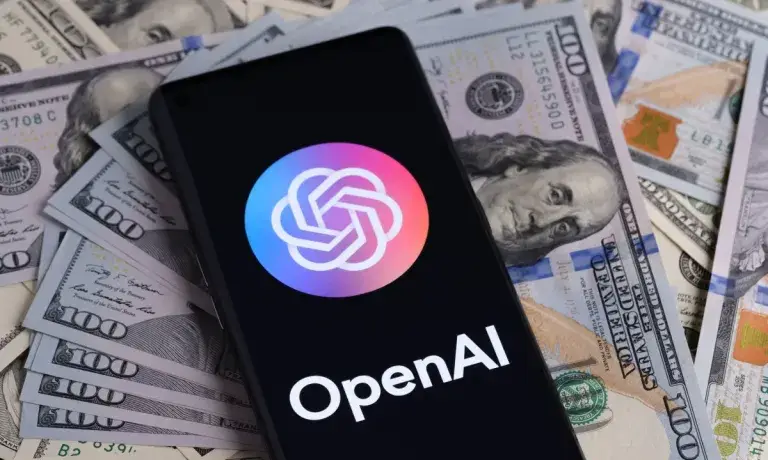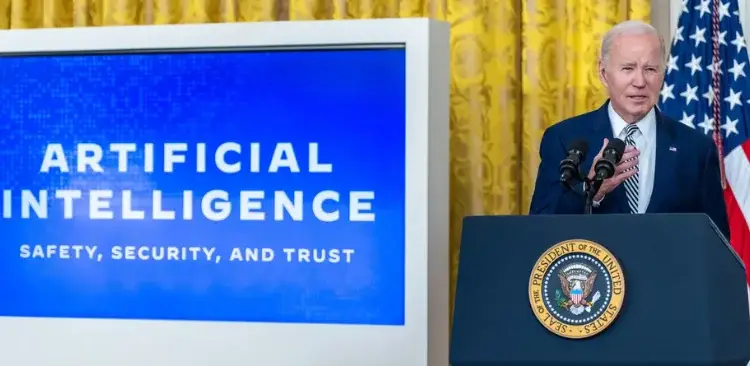OpenAI’s Shift to for-Profit Model Stirs Debate on AI Innovation and Competition

OpenAI, the creator of ChatGPT, is reportedly considering transitioning to a for-profit model. This strategic pivot is reshaping the artificial intelligence (AI) landscape, raising questions about the future of AI innovation, market competition and partnerships in the tech world. The potential shift comes at a crucial time when AI technology is becoming integrated into consumer products and enterprise solutions. OpenAI’s new business approach will likely have significant implications for its relationships with key stakeholders, notably Apple and Microsoft, while also affecting its standing among potential rivals. Industry experts suggest this move could lead to tighter collaborations and deeper integrations with major platforms. “Already, deep integrations exist in place, while a new spotlight by OpenAI might directly align their capabilities further with these platforms,” John Russo, VP of healthcare solutions at OSP, told PYMNTS. “That would mean tighter collaboration in the expansion of AI applications across their ecosystems.” However, this alignment may present challenges, especially with companies known for strict privacy policies. Russo points out that Apple “may want strategic changes in the model to fit their strict guidelines.” Realignment in the Industry The recent partnership between OpenAI and Apple is particularly noteworthy in light of the shift to a for-profit model. “Its partnership with Apple, particularly integrating ChatGPT into iOS 18, is a game-changer, giving OpenAI unprecedented access to the consumer market,” Kaveh Vahdat, founder and CEO of RiseAngle, a generative AI game creation company, told PYMNTS. Meanwhile, Microsoft’s substantial investment in OpenAI positions it to reap significant benefits from this partnership. Vahdat notes, “Microsoft’s deep investment in OpenAI means they stand to gain significantly from this partnership, positioning themselves as key beneficiaries of the AI boom.” Balancing Act One of the most intriguing aspects of OpenAI’s new for-profit status is its potential impact on equity ties with rivals like Google, Meta and Amazon. Russo characterizes this as “the most delicate balancing act,” saying, “On the one hand, this could provide OpenAI with special access to resources, infrastructure, or talent that could move things faster for its innovation. It also brings a very real potential for conflict of interest, especially with how deeply invested these companies are in their own AI projects.” The move to a for-profit model may also intensify regulatory scrutiny. Vahdat said, “As regulatory scrutiny ramps up, particularly with inquiries from the FTC, the balance between cooperation and competition is delicate.” However, not all experts anticipate immediate conflicts. Yashin Manraj, CEO of Pvotal Technologies, offers a different perspective on these equity ties. “Due to AI’s rapid evolution and fear of oversight or new regulations, I believe it is unlikely that Google, Meta or Amazon will create any conflict or restrictions as long as the mutually beneficial relationship continues: OpenAI is still entirely dependent on their data centers, data, and infrastructure.”
AI Chatbots Could Become Cybercriminals’ Latest Weapon

Artificial intelligence (AI) chatbots, often heralded for their productivity benefits, now threaten cybersecurity as criminals harness them to create sophisticated malware. HP Wolf Security researchers have uncovered one of the first known instances where attackers used generative AI to write malicious code for distributing a remote access Trojan. This trend marks a shift in cybersecurity, democratizing the ability to create complex malware and potentially leading to a surge in cybercrime.
How will the Visa lawsuit affect businesses and customers?

The US Department of Justice's recent lawsuit against FinTech major Visa is part of a broader global trend aimed at curbing the dominance of financial and technology giants. It could potentially create more competitive markets and reduce barriers for new companies, while also addressing the rising debt-fee burden facing consumers.
Connecting your phone to rental car infotainment system? There is a big, hidden privacy risk

The recent data breach that exposed the sensitive information of some 300,000 Avis customers highlighted some critical vulnerabilities within the rental car industry. Yet, there’s another, often overlooked security risk when drivers use a rental car: the personal data you unknowingly leave behind when syncing your mobile device to a rental car’s infotainment system.
Is Microsoft about to kick security vendors out of the kernel?

When Microsoft locks the doors of a secretive security summit tomorrow, one topic is expected to loom large on the agenda. The official goal of the Windows Endpoint Security Ecosystem Summit at Microsoft’s HQ in Redmond, Washington, is to set out “concrete steps” to improve security and resiliency in the wake of the Crowdstrike global mega-outage.
Meta Wants To Get Small With Its AI Language Models

While large language AI models like ChatGPT, Gemini, and Llama dominate the headlines, Meta is shifting focus to small language models. According to a recently published paper by Meta’s research team, the company is betting on these smaller models as the future of AI.
The Rise of Job Posting Scams on Freelancing Platforms

For freelance workers such as content writers, developers, or web designers, platforms such as Fiverr and Upwork provide an array of opportunities for work. According to a recent study from Upwork, freelancers made up 38% of the workforce as of December 2023, comprising everyone from seasoned professionals to those just starting to dip their toes into the freelance world.
AI for Everyone: How Small Language Models are Revolutionizing Accessibility and Sustainability

Artificial Intelligence (AI) has revolutionized industries, with Large Language Models (LLMs) at the forefront. These powerful systems, like ChatGPT, Google Gemini, and Microsoft's Co-Pilot, drive the cutting-edge of AI capabilities. However, their extensive energy and cost demands, requiring significant data center resources, pose challenges in scalability and accessibility, especially for global end-users.
The Biden Administration’s AI Regulation Stance

In a move that has triggered a whirlwind of responses, the Biden Administration has decided not to immediately regulate the development of AI. The revelations came in a report from the US Department of Commerce’s National Telecommunications and Information Administration. The report clearly states that “the government will not be immediately restricting the wide availability of open model weights.”
White House opts to not add regulatory restrictions on AI development – for now

The Biden Administration on Tuesday issued an AI report in which it said it would not be “immediately restricting the wide availability of open model weights [numerical parameters that help determine a model’s response to inputs] in the largest AI systems,” but it stressed that it might change that position at an unspecified point.